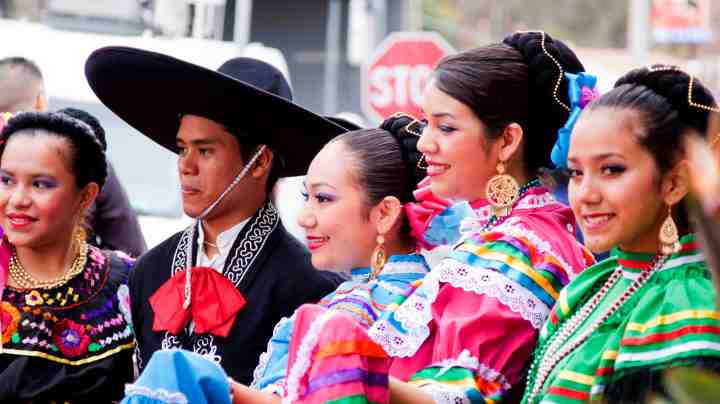Cinco de Mayo’s Hidden Link to Black & Brown Solidarity

Photo by KathyDewar / iStock Unreleased
Nowadays, Cinco de Mayo in the United States is largely reduced to bottomless margaritas and people wearing sombreros and mustaches (please don’t do this). Though the origins of the day – which celebrates Mexican soldiers’ defeat of the French in Puebla in 1862 – in the US are mostly forgotten, it has roots in Black and brown solidarity.
In 1860, Mexican President Benito Juárez revealed that the country could not pay its debts to Spain, the United Kingdom, and France. Together, they sent over a naval force to collect their payments, but Spain and the UK ended up reaching a deal. France, then ruled by Emperor Napoleon III, decided to go another route, however. Napoleon III decided to invade the country, and with the ongoing Civil War in the United States, his hope was to arm the Confederacy, which wanted to secede in order to protect the institution of slavery, in exchange for cotton. The Union blocked the South from shipping cotton to Europe.
Marching from Veracruz, French forces looked to capture Mexico City, but on May 5, 1862, they were beaten at Puebla by General Ignacio Zaragoza, volunteer troops, and enlisted ones. The surprising defeat forced the army to retreat to Veracruz. It was a short-lived victory because the French were eventually able to invade Mexico – French forces took Puebla in May 1863 – but many believe that year-long delay worked to President Abraham Lincoln’s advantage. It bought the Union enough time to win decisive battles before the Confederacy could receive upgraded weapons.
“By the time the French occupy Mexico City in June of 1863, the battle of Vicksburg was already underway,” said Eric Rojo, a member of the Military Order of the Loyal Legion of the United States, to History.com. “Even if French were able to set their supply lines by mid-1863, it would have made very little difference in the outcome of the Civil War.”

In Mexico, the battle became an example of the country’s resistance. And for Mexicans in California, it became a cause for celebration. They quickly saw the connection between the Civil War and Zaragoza’s victory. “In 1862, things weren’t going well for the Union in the Civil War, but here in Puebla was a clear-cut victory that completely threw the French timetable off,” said David Hayes-Bautista, director of the Center for the Study of Latino Health and Culture at the School of Medicine, UCLA to History.com. “The news reports just electrified Latinos and jolted them to a whole new level of organization and activity.”
But the holiday didn’t begin to pick back up until the 1960s when Chicano activists revived it as a way to support the Civil Rights movement.
Unfortunately, this history’s been buried under taco and liquor specials, but it’s important we recognize and observe why we first began celebrating 5 de Mayo in the United States.